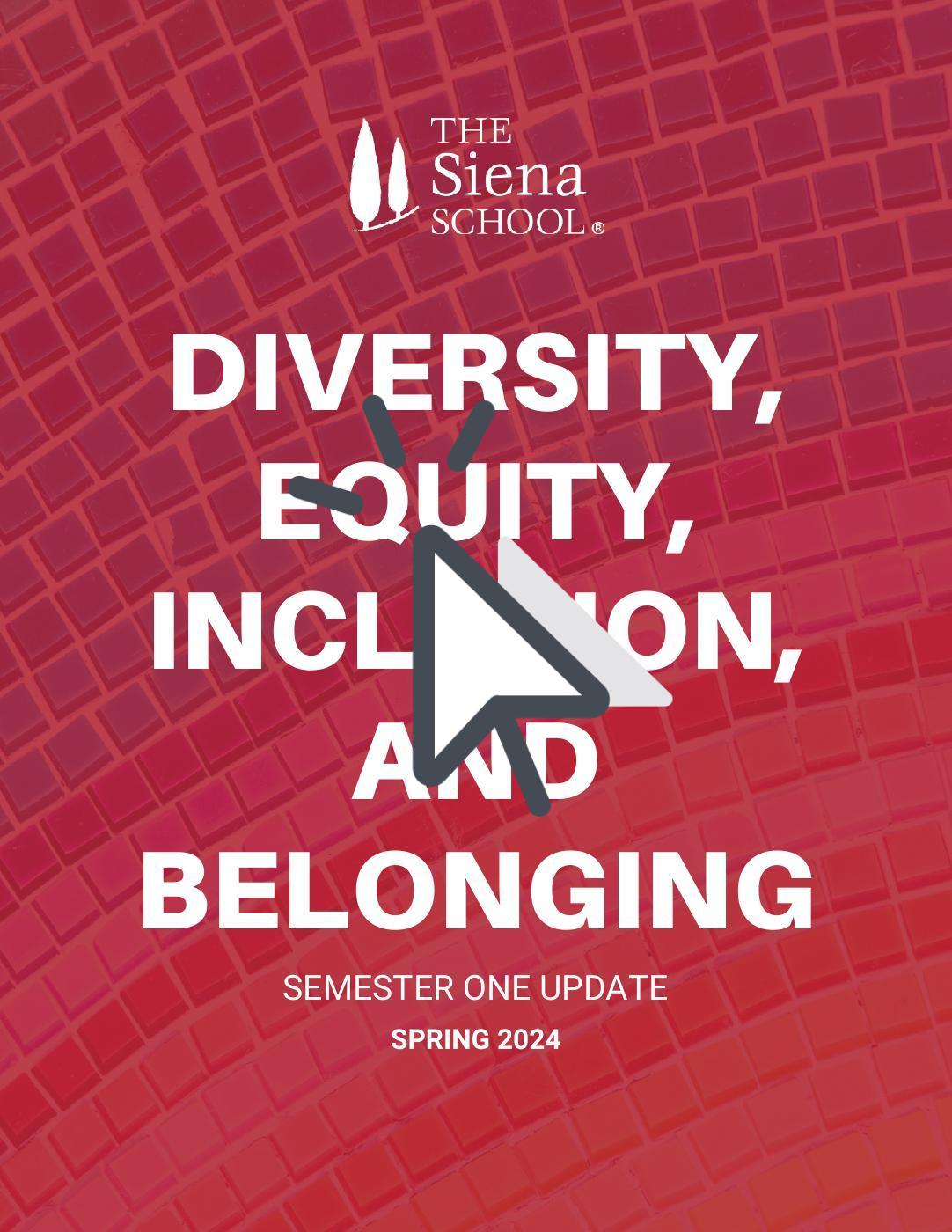Empowering students with language-based learning differences
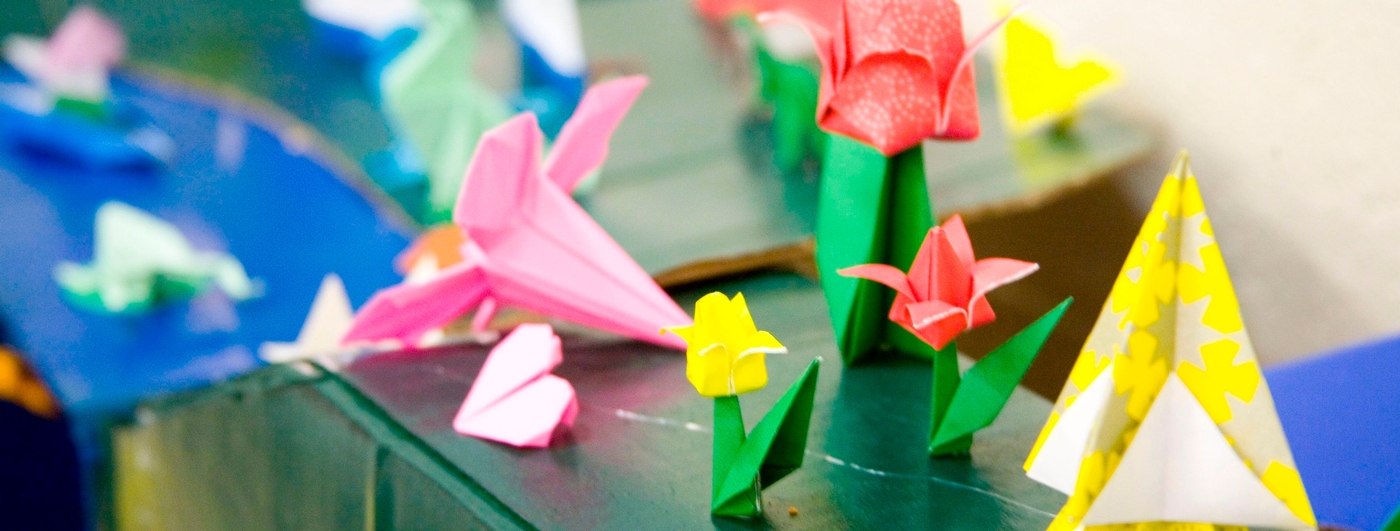
Siena Blog



The Siena School Blog
Discover, Learn, Celebrate, and Empower
Welcome to Siena's blog, your source for helpful, cutting-edge resources tailored to teachers, parents, and other advocates in the learning differences community. We are dedicated to providing a wealth of curated knowledge spanning various topics, ranging from dyslexia advocacy and awareness to classroom teaching strategies, heritage month profiles, and social and emotional health.
Spotlight on Girls in Science at Siena
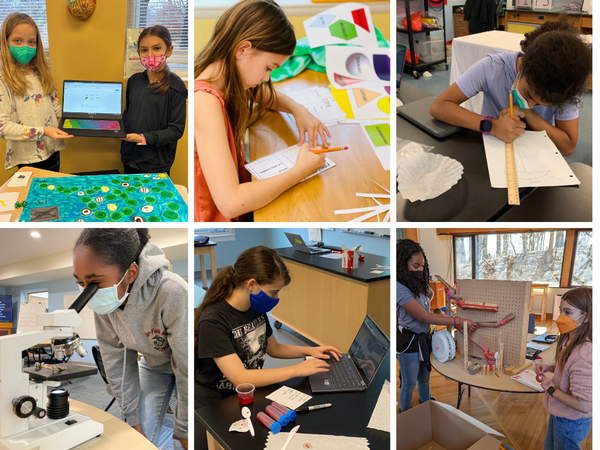
“I used to hate the thought of science. At Siena it’s a lot more fun, and I’ve learned a lot about how to become a scientist.” —Siena Middle School Student
It’s no secret that there’s a STEM Gap for girls and women ranging from K-12 and postsecondary education to the workforce. This overview from the American Association of University Women cites a few factors contributing to the gap—such as gender stereotypes, a lack of female role models for young girls in STEM, and struggles with math and science confidence.
It’s especially urgent, then, for K-12 teachers to ensure that all of their students feel supported in STEM classes. As Siena’s Middle and High School Science Teacher Kanika Staten stresses, “It’s important for teachers to cultivate an interest for girls in the sciences early—ideally in elementary school—and encourage them when they have an aptitude for the sciences.”
To further commemorate Women’s History Month 2022, Siena is highlighting some of our female student and teacher voices from science classes. Science is an integral part of Siena’s curriculum, first introducing students to foundational concepts in elementary school and eventually refining their focus, skills, and advanced interests in high school.
Siena’s Science Role Models
Like her STEM colleagues at Siena, Staten sees the importance of developing girls’ STEM successes, mindsets, and confidence: “Teachers have to show students meaningful examples of people doing work in the sciences who look like them and have had similar struggles.”
A Siena middle school student admires Judy Resnik (space shuttles Discovery and Challenger) and Haley Arceneaux (Inspiration4) as her predominant role models for women in the sciences. Resnik, who earned a PhD in Engineering from the University of Maryland, was the first American Jewish woman in space. A physician assistant at St. Jude Children's Research Hospital and childhood cancer survivor, Arcenaux was a medical officer on the recent all-civilian mission in 2021.
A Siena high school student feels inspired by Albert Einstein since he was also dyslexic. Another high schooler feels inspired not by a specific person but by a type of person: “I admire anyone who’s willing to speak up—especially if it’s against a corporation hurting the environment. I also admire people who are willing to have conversations and to change their views of things if they discover new facts.”
Assistant Head of School (and former Math and Science Department Chair) Jennifer Chambers cites women environmental scientists, such as Sylvia Earle and Rachel Carson, as her scientific role models as both a teacher and environmentalist.
Finding inspirational voices helps girls and young women to be passionate about the sciences, as well as to think early about STEM career paths. Chambers adds: “Siena helps develop girls’ scientific mindsets (such as taking risks, being curious, and learning from failures) from elementary grades all the way through high school.”
At all grade levels, writing is an important component of the sciences at Siena; students write reflections, science journal entries, lab reports, and more as they progress through the curriculum. Since starting at Siena in 8th grade, a high school student feels she’s “grown more willing to accept that my ideas can always improve and focus.” She’s also learned how important it is “to put scientific ideas into clear, basic words to make science accessible for a wide range of people so they become educated.”
Siena Girls’ Voices in the Sciences
Hear from Siena students about what motivates them in science classes:
“I like doing experiments. When we did the Magic Milk experiment, I liked how when the two mixtures were combined the reaction was different colors.” —Elementary Student
“I like science because I like learning about nature.” —Elementary Student
“Since starting at Siena in 6th grade, I have a better grasp and more confidence in writing about science and understanding how the world around me works.” —Middle School Student
“I’ve always liked science—it’s very engaging and hands-on. The fun thing about science is failing—and then learning and improving from the failure.” —Middle School Student
“I like how our teachers let us explore and give us cool topics to investigate.” —Siena Middle School Student
“It’s been interesting learning about the different types of sciences since elementary school at Siena. I’ve always enjoyed it.” —High School Student
“Debating about science topics is very fun. Looking at both sides of an argument and having to research a position is engaging for me.” —High School Student
A high school student appreciates learning about scientific concepts that extend beyond the classroom and overlap with social and political issues. She points to environmental science and sustainability, which “affects me most as a human.” Regardless of where her career path takes her, she feels ready for it to involve the sciences, as well as for “being that advocate who people go to for change.”
Resources for Girls and Women in STEM
See these science-themed podcasts:
- 60-Second Science
- Are We There Yet?
- How I Built This
- Invisibilia
- Radiolab
- Science Friday podcasts
- Science Rules!
- Wow in the World
See also these recent books from and about women in the sciences:
- Maggie Aderin-Pocock, Dr. Maggie’s Grand Tour of the Solar System and Book of the Moon: A Guide to Our Closest Neighbor
- Eileen M. Collins, Through the Glass Ceiling to the Stars
- Hope Jahren, Lab Girl
- Sarah Stewart Johnson, The Sirens of Mars: Searching for Life on Another World
- Katie Mack, The End of Everything (Astrophysically Speaking)
- Liza Mundy, Code Girls
- Lauren Mwale, The Shuri Effect: Bridging the Gap for Young Black Women in STEM
- Annie Murphy Paul, The Extended Mind: The Power of Thinking Outside the Brain
Learn more about Siena’s STEM curriculum:
- Elementary Science and Math
- Middle School Science and Math
- High School Science, Math, Robotics, and Engineering
Lastly, see Siena’s blog for related material on successful women:
- Spotlights on astrophysicist Maggie Aderin-Pocock, poet and activist Amanda Gorman, and Olympian and activist Meryl Davis.
- Posts from Assistant Head of School Jennifer Chambers on the virtual science classroom and creating an authentic learning experience.
Spotlight on Meryl Davis
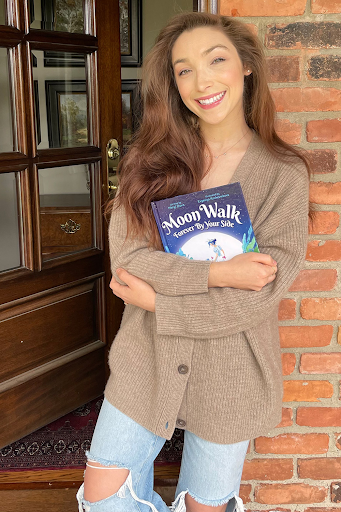
“I learned how I learned and how my brain worked. It helped me adjust and compensate for my differences…. It opened me up to problem solving, seeing things differently, and how I can help myself overcome things.” —Olympian Meryl Davis on her dyslexia
Even before she won Olympic gold in 2014, Meryl Davis knew the importance of advocating for herself and others. A competitive skater and ice dancer since age 5, Davis has used both her public presence and her community dedication to help young people achieve their goals.
As part of Women's History Month this year, Siena is honoring Davis for her successes in inspiring women and girls both on and off the ice, in part through her perseverance in adjusting to her own learning differences.
Davis’s dyslexia diagnosis came in 3rd grade. At first, she felt less-than and inadequate, and she eventually figured out how to learn in her own way, finishing high school as a member of the National Honor Society. She attended the University of Michigan, majoring in Cultural Anthropology (Class of 2020) while also training full-time on the ice rink.
Davis also lacks depth perception and has trouble seeing out of her right eye, which was another adjustment she made successfully. As she did in the classroom, Davis developed accommodations for her vision issues on the ice, such as by memorizing markings on the ice to situate herself when skating and trusting her partner to stay safe and avoid collisions with other skaters.
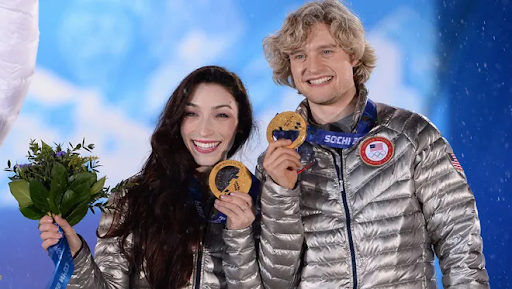
A profile from the Yale Center for Dyslexia and Creativity quotes Davis on her professional path: “With skating I could feel it more than see it.” Moreover, “I fell in love with it because it made sense to me, partly because I see things differently. I learned to enjoy it, worry free, in terms of moving with the music. It’s been a really beautiful part of my life.”
At the 2014 Winter Olympics in Sochi, Russia, Davis and her partner Charlie White became the first American team to win the gold medal in ice dancing. Davis and White had won medals in other competitions since 2006, and their Olympic victory capped their great run as skating partners. In 2020, they were named to the U.S. Figure Skating Hall of Fame. Learn more here about Davis’s accomplishments on the ice.
.png)
Since winning Olympic gold, Davis has been dedicated to supporting young people and advocating for access to figure skating, education, and social–emotional wellness—particularly in underserved communities. Among her post-Olympics accomplishments are:
- In 2015, she wrote for Team USA about the importance of sports and community advocacy. “[S]port is about the kind of success that brings you one step closer to being the best version of yourself,” she wrote in helping define “success” more broadly than international competitions, medals, or other accolades.
- She’s worked with Classroom Champions, an organization that partners with elite athletes to help children’s academic and social–emotional wellness.
- A Michigan native, Davis is a founding co-chair of the organization Figure Skating in Detroit as well as an ambassador for the Women's Sport Foundation. Figure Skating in Detroit combines figure skating, tutoring, STEM coursework, and leadership training to give Detroit-area girls access to a supportive, mentoring community. “Figure skating is an expensive sport,” notes Davis, who’s part of the program’s leadership committee and a member of its champions committee. “It hasn't been a particularly diverse sport historically, so we focus on giving access to girls of color in the city of Detroit.” (Learn more here about Figure Skating in Detroit.)
- In April 2021, Davis added children’s book author to her professional accomplishments, publishing the picture book Moon Walk: Forever by Your Side, about a parent and a child bonding.
“Patience with oneself is the key to learning how to be your best self in any case. Just because things come differently to you doesn’t make you any less. You have to rely on the people who are there for you.” —Olympian Meryl Davis on using available supports
See Siena’s blog for related material on successful women, including a spotlight on astrophysicist Maggie Aderin-Pocock from Women’s History Month 2021 and one on poet and activist Amanda Gorman from Black History Month 2022.

